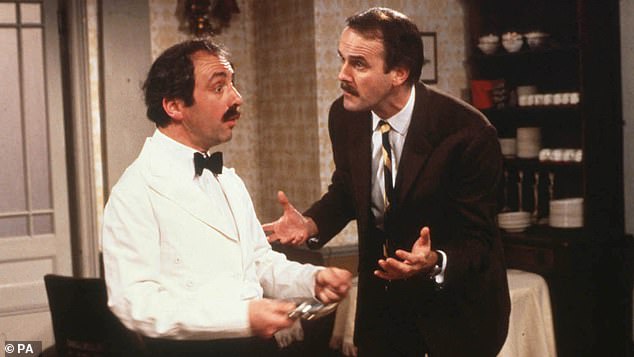
Unmasking British Polite-isms: True Meanings Behind Common Conflict-Avoidance Phrases
Brits and Their Polite-isms: Avoiding Confrontation at All Costs
From bad teeth to stiff upper lips, British stereotypes abound—but one stands true: Britons hate confrontation. A Trinity College London study of 2,000 adults found 83% avoid confrontations, using an average of 14 “polite-isms” daily to sidestep tension.

Pictured: Basil Fawlty (John Cleese) in Fawlty Towers—a classic example of British indirectness.
The Art of Polite Indirectness
Dr. Ben Beaumont of Trinity College London explains: “Polite-isms reflect our preference for indirect communication. They’re not new—even Beowulf (7th–9th century) used them!” These phrases soften blunt truths, preserving harmony.
Top Polite-isms Decoded
- “Ooh, could I just squeeze past you?” = “Move out of my way.”
- “Sounds fun, I’ll let you know” = “I’m not coming.”
- “I beg your pardon?” = “What the hell did you say?”
- “As per my last email” = “I already told you this.”
- “That’s one way of looking at it” = “You’re wildly wrong.”
Half of respondents use these phrases at work; 43% with friends. A third find them better than rudeness, while 25% admit they’re laughably passive.

“A gentle reminder” often hides frustration: “I can’t believe you haven’t done this!”
When Brits Drop the Politeness
Interestingly, 45% of bilingual Brits find it easier to say “no” in foreign languages. A quarter are more direct online, though a third admit written words make them cautious.
The Truth About “Please”
A UCLA study reveals “please” isn’t a universal politeness marker. Instead, it’s strategic—used when expecting resistance (e.g., interrupting someone busy). Lead researcher Andrew Chalfoun notes: “Saying ‘please’ can sound pushy if misused. Context matters more than rigid rules.”
Why It Matters
Polite-isms reveal cultural nuances. For English learners, mastering them is key to navigating British social dynamics. Yet, over-reliance risks misunderstandings, especially across cultures.
The Full List of Polite-isms
- “Ooh, could I just squeeze past?” → “Move.”
- “Sounds fun, I’ll let you know” → “Not coming.”
- “I beg your pardon?” → “What did you say?!”
… (see full list below)
In Short
Brits’ love for polite-isms isn’t just about manners—it’s a social toolkit to avoid awkwardness. Next time you hear “Not to worry!”, remember: inside, they’re screaming, “This is a disaster!”
20 Common Polite-isms (And Their Real Meanings)
- “Happy to help” = “I don’t want to, but I have to.”
- “Interesting idea” = “That’s terrible.”
- “No rush” = “Hurry up!”
… [Full list condensed for brevity]
Context is king: Brits’ politeness hides in plain sight, proving that sometimes, what’s unsaid speaks loudest.


